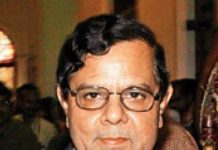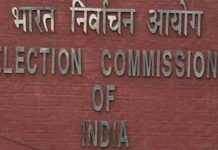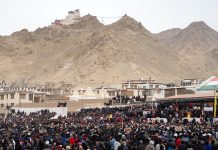Former J-K Governor Satya Pal Malik’s remarks about the Pulwama bombing that killed 40 CRPF jawans and about his role in the withdrawal of Article 370 have put the BJP-led government in a spot, writes Riyaz Wani.
When Satyapal Malik was made governor of Jammu and Kashmir in August 2018, he was the first politician governor the state had ever got. Before joining the BJP, Malik had previously been with the Congress, Samajwadi Party, Lok Dal and had also worked with the former Prime Minister VP Singh. This gave him vast political experience and made him a fit candidate to lead a sensitive state such as J&K.

Malik lived up to his “politician” tag soon after he took charge. He made right noises of the kind that inspired confidence in his administration. He was candid enough to acknowledge that New Delhi has made mistakes in Kashmir which have alienated people. He was sympathetic towards Article 35A, which forbade outsiders to settle in J&K, saying even Himachal Pradesh and North East had similar laws and there was nothing wrong with it. Reassuringly enough, Malik also said that his position on Articles 370 and 35A had been endorsed by the Centre.
“I am not an elected representative but my stand is that arguments on 35A should be deferred until there is an elected government in power,” Malik said. And significantly, he then also made it clear that he wouldn’t encourage a government formation resulting from defection.
Statements like these calmed the then frayed nerves in Kashmir and also helped build faith in the administration. Also, the statements came as a pleasant surprise, considering Malik’s appointment had been made by the BJP-led central government whose ideologically rooted stance on the state had made the Valley inherently distrustful of its actions in the state.
Action didn’t mirror words
It is another matter that Malik then presided over a state of affairs that acted largely contradictory to his initial utterances. On November 22, 2018, just four months after his takeover, when former chief minister Mehbooba Mufti faxed a letter to Malik’s office declaring a joint bid by her People’s Democratic Party and the National Conference, aided by the Congress, to form the government in the state – three parties held 56 of the 87 seats in the Assembly – Malik claimed he didn’t receive it as there was no one at the office on the day.

But hours later Malik, without acknowledging receipt of the fax, ordered the dissolution of the Assembly.
“Fax is not an issue. There was Eid and both (Mehbooba and National Conference leader Omar Abdullah) are devout Muslims. They should know that offices remain closed (on holidays),” Malik said in his defence at the time.
“I did not have a cook, let alone a fax operator. There was no system,” he added. “They could have sent people in the morning (or a message or representative the) day before yesterday.”
But Omar Abdullah, a former J&K chief minister, asked that if this was so, who had typed the letter that announced the dissolution of the Assembly?
Malik’s J&K term
What happened thereafter is history: over the following year, Malik presided over a rough-neck administration. With Malik at the helm, New Delhi was directly in charge of the affairs of the state. He took forward ‘Operation All-out’ against militants and the NIA investigation against separatist leaders. The government also acted against the local media, holding it accountable for any coverage deemed anti-national. While Operation All-out was an ambitious attempt to finish off the militancy, the NIA probe was geared to individually target separatists and make them pay for their support and alleged funding of the militancy and the unrest in the Valley.
The administration under Malik started putting in place security and other measures in Kashmir to prepare ground for the withdrawal of Article 370. The Valley was more or less reigned in if not tamed. There was a new ruling in the region: the administration had succeeded in telegraphing the message of a no-holds barred reprisal should anyone come in the way of the execution of the BJP’s agenda in the state.
By the time, J&K was stripped of its semi-autonomous status on August 5, 2019, New Delhi through Malik had cast its net wide, with the NIA systematically scrutinizing and calling for questioning well-known people from politics, business and media. The local media was picked up for special attention: among the people who were probed by the NIA or called for questioning were cub reporters and the editor of one of the largest selling dailies. This brought the reporting in the local newspapers more or less in line with the official line.
On the eve of August 5, 2019
Malik’s conduct in the run-up to the revocation of Article 370 has also become memorable in J&K. Ahead of the erasure of Article 370, Malik had described apprehensions about its removal as mere rumours. But when the article was abrogated, amid unprecedented military siege, arrests of thousands of people and communication blackout. He took credit for that too.
People in Kashmir still remember August 5 eve with some degree of horror. On August 2, J&K Home Secretary Shaleen Kabra issued an order calling on pilgrims and tourists in the state to “immediately” curtail their stay and leave the state “as soon as possible”. The order cited an unspecified looming security threat for the extraordinary measure. This instantly triggered panic. People rushed out of their houses to stock up on the essentials. Hundreds of vehicles lined up for fuel at the filling stations. Many people without vehicles were seen carrying fuel in cans, bottles and even vacuum flasks.
On the other hand, tourists and pilgrims were too seized with fear of the unknown. The government arranged transport to help ferry them outside the state. The challenge was bigger in the case of the ongoing annual pilgrimage to the high altitude cave shrine of Amarnath which was due to culminate in the next few days. Thousands of pilgrims on their way to the shrine or lodged at the base camps at Pahalgam and Sonmarg were asked to return.
Ironically, the government order asking outsiders to leave the Valley had followed within an hour of an assertion by the state’s top security brass at a press conference in Srinagar that the security forces had reigned in the once runaway separatist militancy and brought the situation under control. In fact, the reporters were informed by the state’s Director General of Police Dilbagh Singh and the then General Officer Commanding 15 Corps Lt General K J S Dhillon that the threat to Amarnath pilgrimage had been neutralized by the timely recovery of a Pakistan marked anti personnel mine and a US made sniper rifle M24. This had reassured people following a weeklong troop build-up in the state of around 38,000 more security personnel. Malik too was offering his own assurances, saying nothing would happen. But, as it turned out, the re-assurance was short-lived.
Malik was governor till October 2019 when J&K formally became a union territory, and according to him, he couldn’t be downgraded to the role of a Lieutenant Governor.
Kashmir hasn’t left Malik
Since then, although Malik has left Kashmir, it appears that Kashmir has not left him. He has recurrently kept talking about his contentious stint in the Valley and generated controversy along the way. The first such controversy he raised was about an alleged bribe of Rs 300 crore that he was offered to clear two files when he was the governor of J&K. These were the files for awarding contracts for a group medical insurance scheme for government employees. The CBI has booked Anil Ambani’s Reliance General Insurance Company and Trinity Re-Insurance Brokers Limited in this case.
New revelations
With recent revelations in an interview with The Wire, Malik has triggered a storm. Two of the controversies that stand out are his remarks about the Pulwama bombing that killed 40 CRPF jawans and about his role in the withdrawal of Article 370.
Malik accused the Indian system, particularly the CRPF and the home ministry, of “incompetence” and “laparvahi” which led to the devastating terrorist attack on soldiers in Pulwama. He further stated that the attack was a result of the government’s refusal to provide aircraft to transport CRPF jawans and ineffective sanitization of the route. At the time, Rajnath Singh was the home minister.
He also revealed that he had raised these issues directly with Prime Minister Narendra Modi, who had called him from outside Corbett Park shortly after the attack. However, the Prime Minister had reportedly told Malik not to speak about the lapses and to keep quiet. Similarly, National Security Advisor Ajit Doval had also advised Malik to not talk about the matter. Malik believed that the intention behind this was to put the blame on Pakistan and gain electoral advantage for the government and the BJP.
Malik further criticized the Prime Minister, stating that he was “ill-informed” and “ignorant” about the situation in Kashmir and would not speak about the Union home ministry’s lapses that led to the Pulwama attack. Malik’s comments shed light on the handling of the Pulwama attack and the government’s response to it.
As for Article 370, Malik said he was only told about the plan for revocation of the constitutional provision on the eve of August 5. He stated that he was instructed to open a letter and approve it without objection, which he did.
“They did not tell anything to me whether they are doing it or not doing it. I was told they will send a letter and I have to send it back the following day after signing it,” he told The Wire. “I only told Mehbooba when she came to see me that this is not a small thing. They cannot just declare it, they will have to take it to Parliament.”
Political import of the revelations
Both, Malik’s remarks about the Pulwama attack which nearly triggered a war with Pakistan, and about the repeal of Article 370 have put the union government on a difficult wicket. The allegation that the BJP government made a political use of the killing of 40 jawans is serious. This has provided the opposition parties with ammunition in an election year. No less than the veteran NCP leader Sharad Pawar has called for the probe into the death of 40 security personnel at Pulwama.
Sanjay Raut, the leader of the Shiv Sena led by Uddhav Thackeray questioned whether the 2019 Pulwama attack had been staged by the Centre with the aim of winning the Lok Sabha elections.
“People were aware at the time that some India-Pakistan incident will be manufactured for political gain,” Raut was quoted by the media as saying. “Was the terror attack staged with the aim of winning elections? Was there a plot to get 40 jawans killed for political gain? We [Opposition] had repeatedly tried to ask such questions at the time but were silenced by the ruling party and branded as ‘traitors.”
Congress MP and former Union minister Manish Tewari said that Malik’s claims were disturbing.
“If what the former Hon’ble Governor is saying is correct it is very very disturbing to say the least,” Tewari wrote on Twitter. “It will play out very badly in the international arena.”
Removal of Article 370
Similarly, Malik’s admission that he was unaware of the Article 370 revocation until the day before it was carried out has generated concerns about how it was done. In Kashmir, the politicians have said that it exposed the arbitrary manner in which the article was read down.
Both the National Conference (NC) and the Peoples Democratic Party (PDP) criticized former Jammu and Kashmir Governor Satya Pal Malik for revealing that the Indian government bypassed the mandated consultation mechanism before withdrawing Article 370.
National Conference leader Aga Syed Ruhullah Mehdi argued that the decision to revoke the article was made by an appointed individual and that the fate of 14 million people in Jammu and Kashmir was decided without their consultation. He also pointed out that Clause 3 of Article 370 stipulates that the abrogation could not happen without the concurrence of the State’s Constituent Assembly, which was not obtained.
“Mujhe kya, unko karna tha to karte, na karna tha to na karte, mujhe kya tha’ (What’s it to me? If they wanted to do it, they would; if they didn’t want to do it, they wouldn’t). This is how the fate of the people of J&K was decided on that day. This is how they lynched and murdered democracy,” senior NC leader and former Minister Aga Syed Ruhullah Mehdi said.
PDP leader Naeem Akhtar echoed this sentiment, saying that any attempt to tamper with Article 370 should have been ratified by J&K’s Constituent Assembly of 1951.
He also criticized Malik for acting as the Constituent Assembly and signing the letter from Delhi without knowing its contents.
Effect on the BJP’s political standing?
Would Malik’s revelations affect the BJP’s vaunted political standing in the country and as a front runner in the general elections next year? Unlikely. There is little to indicate that Prime Minister Narendra Modi is any less popular, let alone facing an anti-incumbency sentiment. His name and persona are now entrenched in the national psyche. He is seen as a leader whose continuation in power people now take for granted. If notebandi, farmers’ protests, Chinese incursions, the COVID-19 pandemic and its widespread depredations couldn’t dent his image, nothing else can.
The absence of a united opposition front and a consequent alternative political narrative have made the BJP’s job even easier. The unity of the opposition has been inherently hamstrung by the difficulty to rally people around a principal leader or a party. Since 2014, Congress has lost its pole position in India’s politics. And its leader Rahul Gandhi has struggled to match up to prime minister Narendra Modi’s overarching political appeal.
As things are, the Hindutva ideology is the BJP’s trump card, overshadowing any governance or security failure.
At the same time, politics is a dynamic process. A lot would also depend on how the opposition plans for the year ahead and whether it would be able to convince people about the failures and excesses of the government. There is a chance that the economic factor could play a role: unemployment, inflation, etc could force a critical mass of people to turn away from the government. Or just a sense of fatigue with the current leaders, a certain disaffection with the prevailing state of affairs could do the trick. The coming weeks and months could be crucial on this score.













